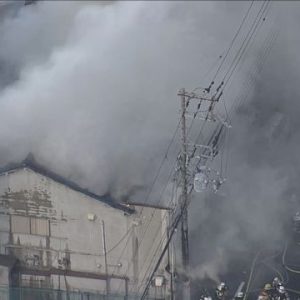A man with a treatable bowel condition died after his partner called 999 five times before an ambulance showed up, an inquest heard.
By the time Hayley Hicks had called 999 for a third time – and her two later calls – the condition of Charles Devos had become untreatable.
She first called 999 at around 10.55pm on January 8, 2021. Her fifth and final 999 call was at 4.23pm on January 9 to say Mr Devos was sweating and couldn’t move because of the dreadful pain.
An ambulance finally arrived at their home at 4.30pm but Mr Devos suffered a cardiac arrest and died.
Coroner Guy Davies said that Mr Devos was a fit and healthy man and there were missed opportunities to treat him due to severe pressures on the ambulance service.
The assistant coroner for Cornwall said the 54-year-old’s death was ‘avoidable’ and there was a ‘systemic failure’ within the health and social care system.
Mr Devos died shortly after paramedics arrived at his home in Marazion, Cornwall, in January 2021.
The coroner said during a second 999 call a South Western Ambulance call handler told a clinical adviser that Mr Devos was ‘never ill’ but was screaming in the background and ‘rolling around in pain’.


He was suffering with abdominal pain, had a fever and was vomiting, Miss Hicks had told the call handler at the South Western Ambulance Trust.
But the inquest in Truro was told that delayed triage was caused by extreme pressures and demands on the ambulance service and that Mr Devos would have been waiting on a stack for hours for an ambulance.
Coroner Mr Davies concluded: ‘There was systemic failure within the system of health and social care which was causative of Charles’ death.’
The inquest was told that had Mr Devos been taken to the hospital’s emergency department even in the early hours of January 9, 2021 his condition would have been survivable if he had received surgery.
Mr Devos had agreed to self-convey to Treliske hospital in Truro after he was told by a clinician he needed to see a doctor – but he would have to wait hours for an ambulance.
He died from small bowel infarction which is an irreversible injury to the intestine resulting from insufficient blood flow which can quickly lead to a life threatening infection and death.
Mr Davies said: ‘There were missed opportunities due to operational pressures on the South West Ambulance Service.
‘The Trust’s ability to respond to patients was compromised in system and capacity related issues that resulted in handover delays to the hospital emergency department.’
On January 8, 2021, 109 hours of ambulance availability was lost in handover delays.
And delayed discharges to social care meant some hospital wards had patients taking up valuable bed space and emergency departments were packed with patients.
The coroner said he would be writing to the Secretary of State for Health and Social Care about the systemic failures which increases the risk of future deaths.
He said at the Royal Cornwall Hospital there were handover delays of more than two hours in most months in 2024 and lost ambulance hours of up 7,000 hours in October but around 5,000 hours a month in 2024
Mr Davies said Mr Devos died from a treatable bowel condition and blamed extreme operational pressures on the ambulance service and a failure in the health and social care system.




